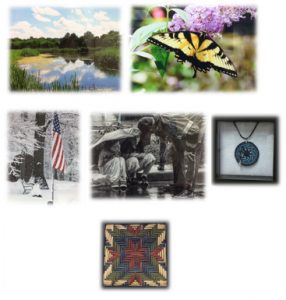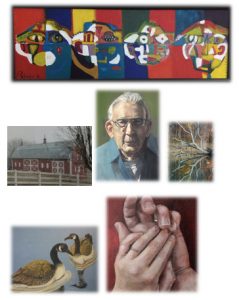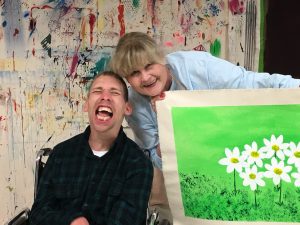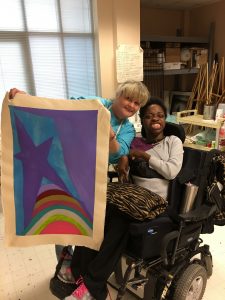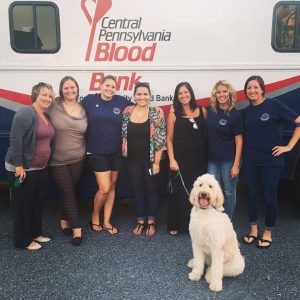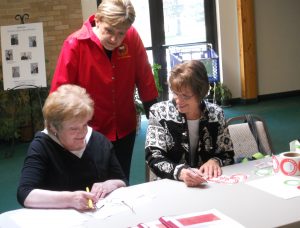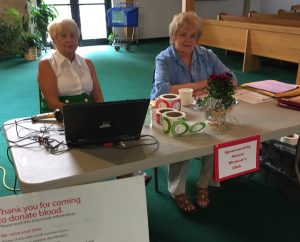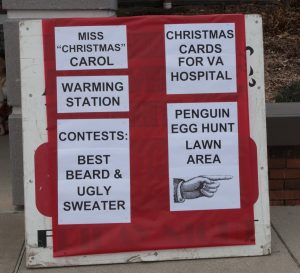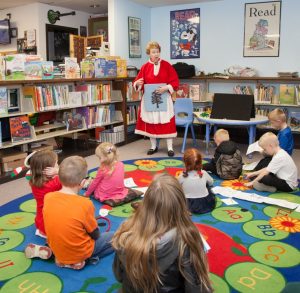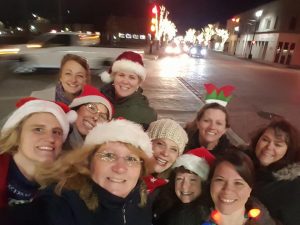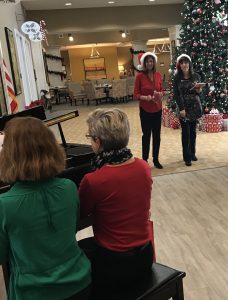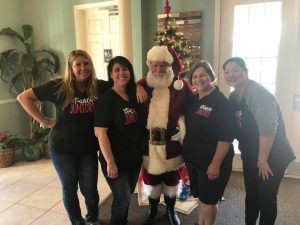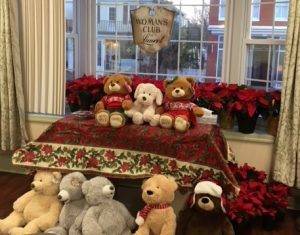Celebrating Mardi Gras with GFWC
Mardi Gras is a celebratory day, and many GFWC clubs take it as an opportunity to celebrate their communities! It’s often an indulgent holiday, with feasts and traditional foods that make it live up to its “Fat Tuesday” name. But the GFWC Western Wake Woman’s Club (North Carolina) use the day to make a difference in the lives of people who might not have access to food. They’ve volunteered for Meals On Wheels of Wake County’s Mardi Gras Ball for five years now. The club greets guests, answers questions, encourages participation in the silent auction, and hands out door prizes. The fundraiser event supports the elderly and homebound members of their community by ensuring they can be delivered meals that will lead to a healthy life.
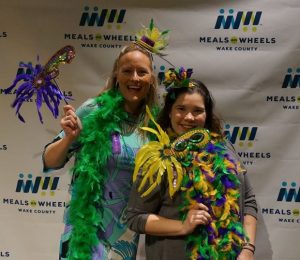
To get into the spirit of Mardi Gras and the excitement of Bourbon Street, the GFWC St. Petersburg Junior Woman’s Club (Florida) is having their 4th Annual Mardi Gras Bar Crawl. Participants dress up and get a swag bag that includes a mask and beads.
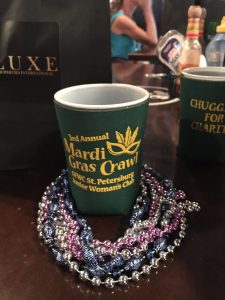
They get to drink, dance, and crown the King and Queen of Mardi Gras. The local bars are incredibly supportive of the Juniors and their event. They help decorate in purple, green, and gold, and offer drink specials and prizes. The club loves all of the fundraisers that allow them to continue their long tradition of service in community, but the Mardi Gras Bar Crawl might be the most fun.
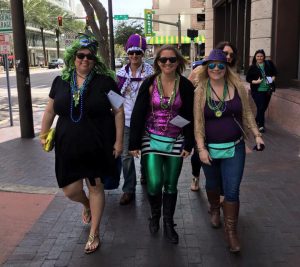

Perhaps the expert in Mardi Gras events is the GFWC Frederick Woman’s Civic Club (Maryland). This February they’ll host their 57th Annual Mardi Gras Gala, their county’s longest running event. In 1962, the historic Steiner House was going to be taken down and turned into a gas station, so the club seized the opportunity to preserve a Frederick landmark and make it into their home. The club started the Mardi Gras event to pay off the mortgage and maintain the house that was built in 1807. Over the years, they began to use the extra proceeds to fund scholarships, non-profit organizations, and the club’s Community Service Programs.
The club rents out a ballroom and courtyard for the affair, with a DJ who brings dance motivators. Three men chosen for their community participation are crowned the kings of Mardi Gras.
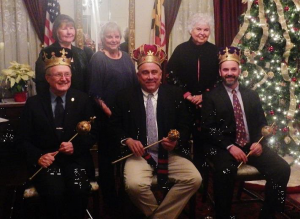
There is also a royal court of princesses who are high school juniors, seniors, or college freshmen. The club hosts a Princess Tea for the chosen princesses and their mothers at Steiner House. There’s a brief program with a speaker, followed by an introduction of each girl that emphasizes their achievements and the goals they’ve set for themselves. The princesses take part in a community project too. This year they made Linus Blankets for DC Candelighters, an organization that benefits children recently diagnosed with cancer and supports their families. At the Mardi Gras event, one princess is randomly selected as the Queen of Mardi Gras, and she receives a $1,000 scholarship.
If these Mardi Gras events are any indication, GFWC clubs know how to combine celebration with charity.


